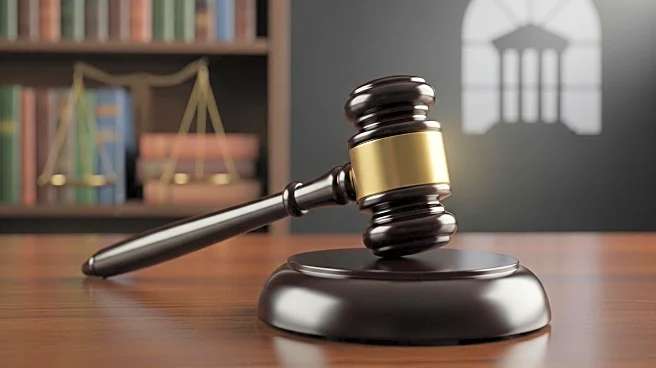What's Happening?
President Donald Trump is making a concerted effort to gain court approval to dismiss Federal Reserve Governor Lisa Cook. The move comes amid allegations of mortgage fraud, which Trump claims Cook has not adequately disputed. The allegations involve Cook allegedly declaring two homes in Georgia and Michigan as her primary residence to secure better loan terms, a claim that predates her tenure at the Federal Reserve. Trump's legal team has requested a stay from a Washington-based appeals court to pause a lower court's injunction that currently prevents Cook's dismissal. The decision from the appellate court is anticipated soon, and if denied, Trump plans to escalate the matter to the Supreme Court. Cook's attorney, Abbe Lowell, argues that the allegations are part of a smear campaign to undermine the Federal Reserve's independence.
Why It's Important?
This legal battle holds significant implications for the independence of the Federal Reserve, a cornerstone of U.S. economic policy. If President Trump succeeds in dismissing Cook based on these allegations, it could set a precedent that allows for increased political influence over the Federal Reserve, potentially undermining investor confidence and economic stability. The case also raises questions about the due process rights of federal appointees, as Cook's dismissal was attempted via a social media post without a formal opportunity to contest the allegations. The outcome of this case could impact the perceived autonomy of the Federal Reserve and its ability to operate free from political pressures.
What's Next?
The appeals court's decision is expected shortly, and it will determine whether the injunction preventing Cook's dismissal will remain in place. If the court sides with Trump, Cook's dismissal could proceed, potentially leading to further legal challenges. Should the appeals court deny the stay, Trump is prepared to take the case to the Supreme Court, which would involve a high-stakes legal battle with significant implications for the Federal Reserve's governance. The Federal Reserve itself has remained neutral, stating it will abide by the court's decision.











